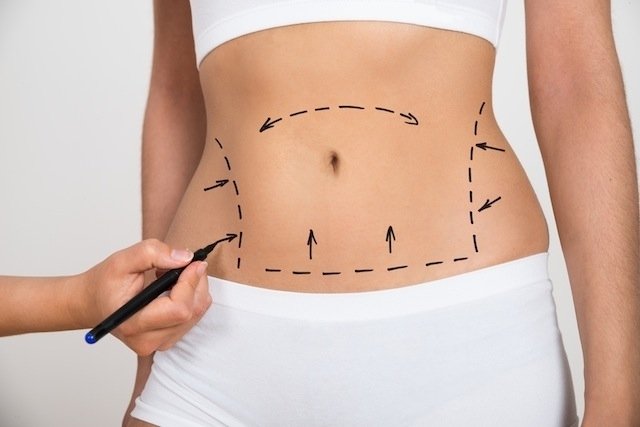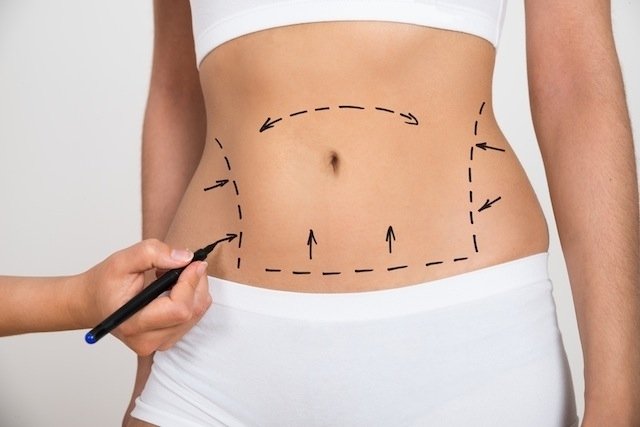Laser liposuction is a plastic surgery performed with the help of laser equipment that aims to melt deeper located fat, then vacuuming it out. Although it is very similar to traditional liposuction, when the procedure is performed with a laser, there is a better silhouette contour, as the laser causes the skin to produce more collagen, preventing it from becoming saggy.
The best results occur when there is aspiration of the fat after using the laser, but when there is little localized fat, the doctor may also advise that the fat be eliminated naturally from the body. In these cases, you should have a lymphatic massage to remove the fat or practice intense physical exercise immediately afterwards, for example.
When fat is aspirated, the surgery must be carried out under local anesthesia to allow the cannula to be inserted under the skin, which will aspirate the fat melted by the laser. After this procedure, the surgeon will place micropore in the small cuts that are made to enter the cannula and it may be necessary to stay in hospital for up to 2 days to ensure that no complications arise.

Who can have the surgery
Laser liposuction can be performed on people over 18 years of age who have mild to moderate fat located in some areas of the body, and cannot, therefore, be used as a form of treatment for obesity, for example.
Some of the most common places to use this technique are the belly, thighs, sides of the breast, flanks, arms and jowls, but all locations can be treated.
What is the post-operative period like?
The post-operative period of laser liposuction can be a little painful, especially when the fat is aspirated with a cannula. Therefore, it is recommended to take all medications prescribed by the surgeon in order to relieve pain and reduce swelling.
It is usually possible to return home within the first 24 hours after liposuction, and it is recommended to stay in hospital for at least one night to ensure that there are no complications such as bleeding or infection, for example.
Then, at home, it is important to take some precautions such as:
- Use the belt recommended by your doctor 24 hours a dayduring the first week and 12 hours a day, in the second week;
- Rest completely for the first 24 hoursstarting short walks at the end of the day;
- Avoid making efforts for 3 days;
- Drink about 2 liters of water per day, to eliminate toxins from fat and facilitate healing;
- Avoid taking other medicines not prescribed by a doctor, especially aspirin.
During the recovery period it is also important to attend all review appointments, the first of which normally takes place 3 days after surgery, so that the doctor can assess the state of the healing and the possible development of complications.
Possible risks of surgery
Laser liposuction is a very safe technique, however, like any other surgery it can carry some risks such as skin burns, infection, bleeding, bruising and even perforation of internal organs.
To reduce the chances of risks arising, it is very important to carry out the procedure in a certified clinic and with a specialist surgeon.

Sign up for our newsletter and stay up to date with exclusive news
that can transform your routine!
Warning: Undefined array key "title" in /home/storelat/public_html/wp-content/plugins/link-whisper-premium/templates/frontend/related-posts.php on line 12
Warning: Undefined array key "title_tag" in /home/storelat/public_html/wp-content/plugins/link-whisper-premium/templates/frontend/related-posts.php on line 13




